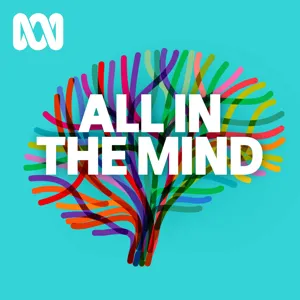Social and community connections provide invaluable support to people living with dementia. Professor Dimity Pond joins Hilton, Steph and Marita to discuss how GPs can utilise social prescribing strategies to optimise the quality of life for people living with dementia.
SHOW NOTES:
Telephone Interview for Cognitive Status (TICS-m) Administration and Scoring Manual: https://d1vhafmemgbnf1.cloudfront.net/sites/cheba2/files/_local_upload/pdf/groups/Neuroimaging/TICS-M%20Australian%20Version%20-%20Admin%20Scoring%20Manual_2020.05.29.pdf
TICS-m questionnaire: (Australian Version)
https://d1vhafmemgbnf1.cloudfront.net/sites/cheba2/files/_local_upload/pdf/TICS-M%20Ax%20Protocol%20(Australian%20version).pdf
GP Management plans
https://dta.com.au/general-practitioners/#gp-resources
Dementia Australia
Providing support, information and services for people living with dementia, carers, family and health professionals
National Dementia Helpline – 1800100500
https://www.dementia.org.au/
Dementia Support Australia (DSA)
Dementia Support Australia (DSA) provides the Dementia Behaviour Management Advisory Service (DBMAS) and Severe Behaviour Response Teams (SBRT) nationwide. Dementia Support Australia offers a free national service operating 24/7 365 days a year.
24 hour Helpline 18000699799
https://www.dementia.com.au/
Carers Australia
Carers Australia is the national peak body representing Australia’s unpaid carers, advocating on their behalf to influence policies and services at a national level. It works collaboratively with partners and its member organisations, the Network of state and territory Carers Associations, to deliver a range of essential national carer services.
Phone 1800242636
https://www.carersaustralia.com.au/
RACGP Silver Book
Medical care of older persons in residential aged care facilities (Silver Book) aims to provide GPs and other health professionals including residential aged care nurses, with a resource for delivering quality health care in residential aged care facilities.
https://www.racgp.org.au/clinical-resources/clinical-guidelines/ key-racgp-guidelines/view-all-racgp-guidelines/silver-book
RACGP Red Book - Guidelines for preventative activities in general practice - Dementia
https://www.racgp.org.au/clinical-resources/clinical-guidelines/ key-racgp-guidelines/view-all-racgp-guidelines/red-book/ preventive-activities-in-older-age/dementia
My Aged Care - dementia resources
https://www.myagedcare.gov.au/getting-started/health- conditions/dementia
Cognitive Screening Tests Standardised Mini-Mental State Examination (SMMSE)
Frequently used in general practice as included in most popular medical software programs. MMSE score require for prescribing dementia medications on PBS
https://www.ihpa.gov.au/sites/default/files/publications/ smmse-tool-v2.pdf - https://www.ihpa.gov.au/sites/g/files/ net636/f/publications/smmse-guidelines-v2.pdf—explanation of scoring
GPCOG
The GPCOG is a reliable, valid and efficient instrument to screen for dementia specifically in a primary care setting. The GPCOG score is not influenced by the cultural and linguistic background of a person making it an invaluable screening tool especially in multicultural patient settings. http://gpcog.com.au/
Kimberley Indigenous Cognitive Assessment (KICA)
The Kimberley Indigenous Cognitive Assessment (KICA) was developed in response to the need for a cognitive screening tool for older Indigenous Australians (45 years plus) living in rural and remote areas. The KICA tool was named after where the original research was conducted and comprises of a number of sections and assesses the person and carer. The KICA tool is now widely used in remote or rural locations across Australia.
http://kams.org.au/wp-content/uploads/2015/04/KICA-Tool- 2006.pdf
Rowland Universal Dementia Assessment Scale (RUDAS)
The Rowland Universal Dementia Assessment Scale (RUDAS) is a short cognitive screening instrument designed to minimise the effects of cultural learning and language diversity on the assessment of baseline cognitive performance.
https://www.dementia.org.au/sites/default/ files/20110311_2011NSWRUDASscoring_sheet.pdf - the test
https://www.dementia.org.au/resources/rowland-universal- dementia-assessment-scale-rudas - information and links to tests in Chinese and Italian
Montreal Cognitive Assessment (MoCA)
The MoCA is well validated and covers a number of cognitive domains. If repeat tests are required, two alternative versions are available with instructions on the MoCA Test website. The tests are also available in many different European and Asian languages.
https://www.mocatest.org/paper/ (Free registration required)
GP Management Plans
Dementia specific GP management plans for Stages 1, 2 and 3 dementia
https://www.dta.com.au/gp-management-plans/
Dementia Training Australia - online courses
https://www.dta.com.au/online-dementia-courses/
Demystifying dementia: A practical course in the diagnosis and management of dementia
Hours: 3
https://dta.com.au/online-courses/demystifying-dementia/
Demystifying dementia: A practical course in the diagnosis and management of dementia
Hours: 2 | RACGP: 4pts | ACRRM: 2hrs
https://www.thinkgp.com.au/education/demystifying-dementia- practical-course-diagnosis-and-management-dementia
Teaching plans for GP supervisors to use with their registrars
https://gpsupervisorsaustralia.org.au/teaching-plans/
(NB Enter term Dementia into search function to find teaching plans on dementia)
Wicking Dementia Research and Education Centre
Master of Dementia Program
https://www.utas.edu.au/wicking/mdem
Wicking Dementia Research and Education Centre
Understanding Dementia MOOC
https://www.utas.edu.au/wicking/understanding-dementia
Wicking Dementia Research and Education Centre
Preventing Dementia
http://www.utas.edu.au/wicking/preventing-dementia
Driving and dementia resources
http://www.profjoe.com.au/all-cases-list/driving-with- dementia/
https://www.dementia.org.au/resources/dementia-and- driving-vic
See omnystudio.com/listener for privacy information.








